One year ago today, a Navy SEAL team killed Osama bin Laden in Pakistan, the culmination of many years of intelligence-gathering. The operation was personally authorized by President Obama, over the objections of Vice President Joe Biden. While national security leaders had, properly, publicly downplayed the importance of getting bin Laden – it was more important to focus on dismantling the operational network of Al Qaeda and similar groups, and overemphasis on one man hiding in isolation would give the fugitive bin Laden an unnecessary propaganda victory – it was nonetheless a significant longstanding priority of three Administrations to get him, and a great day for America when he was killed. The Obama campaign, recognizing that there is broad bipartisan agreement on this point among voters, has done everything possible to capitalize politically on the President’s role.
There are three real lessons to be drawn a year later:
1. In the big picture, we’re all national security hawks now.
2. As a matter of policy specifics, the hawks won and the anti-war movement lost every round.
3. As a matter of partisan politics, the side that loses the debate over the death of bin Laden will be the side that overplays its hand the worst.
I. We’re All National Security Hawks Now
The first takeaway from Obama’s emphasis on hogging credit for the bin Laden takedown – besides the obvious fact that everything Obama does these days is designed to distract the public from his domestic policy record – is that there is bipartisan agreement that being seen as the more hawkish candidate is an unmitigated political positive. No politically significant figure or group is left making the policy argument that the aggressive, unilateral projection of American military power overseas to kill our enemies is a bad thing. Obama’s partisans today make no real effort to hide the fact that they are following the Bush 2004 playbook and trying to run to Mitt Romney’s right on national security toughness. Even with war-weariness in Afghanistan increasingly crossing partisan lines, we are all hawks now.
II. The Hawks Won the Policy Debates, Too
The victory of the hawks is not just atmospheric or partisan. The bin Laden raid vindicated many policies championed by Bush-era national security hawks, several of which were opposed by Obama and other Democrats or were subjected to seriously overwrought criticisms during the Bush years. To the extent that any Obama policy deserves any of the credit for the death of bin Laden, it is only a hawkish, unilateral policy orientation towards Pakistan. Obama can claim a win, but the antiwar movement lost every round.
I detailed this observation last year (as did Ace), and streiff hit a few of the major examples as well earlier today. While my analysis a year ago was based on preliminary reports, we actually have not learned that much new since then on any of the relevant issues. Let’s summarize the key points:
A. Guantanamo and CIA Detention Centers
What we know, based on what’s been made public, is that bin Laden was located primarily by means of following a trail of intelligence that revealed that he was communicating with the outside world mainly via a single faithful courier, Ibrahim Saeed Ahmed, who went by the nom de guerre of Abu Ahmed al-Kuwaiti. And the leads that gave us that knowledge came from the interrogation of prisoners at Guantanamo Bay and CIA “black site” detention centers. Those detainees included 9/11 mastermind Khalid Sheikh Mohammed, Al Qaeda operational chief Abu Faraj al-Libi, “20th hijacker” Muhammad Mani al-Qahtani, and Hassan Ghul, an associate of Al Qaeda in Iraq leader Abu Musab al-Zarqawi.
None of this would have been possible if these detainees were treated as ordinary prisoners of war under the Geneva Conventions, to be asked only the proverbial name, rank and serial number. Barack Obama campaigned against these detention and interrogation sites, closed the CIA “black sites” his first week in office, and is still promising (albeit in increasingly empty fashion) to close Guantanamo. The killing of bin Laden is an unambiguous victory for the detention and interrogation policies of the Bush Administration. And with those sites not accepting new detainees and the Administration switching emphasis to killing rather than capturing and interrogating enemy combatants, it is questionable whether that success can be replicated in the future, with terrorist leaders like Ayman al-Zawahiri and Mullah Omar still at large.
B. Iraq
Of the detainees questioned on the path to tracking al-Kuwaiti, the one that investigators have described as the “linchpin” of the whole investigation is Hassan Ghul. And where did we capture Hassan Ghul? In Iraq in 2004, reportedly by a Kurdish security checkpoint on the Iranian border carrying a message from Zarqawi to bin Laden asking for bin Laden’s support in the insurgency. Of course, none of this would have happened had Iraq remained a Saddam Hussein-run police state hostile to the United States. If we hadn’t invaded Iraq, we would not have captured Ghul, and bin Laden would still be alive. Does that, all by itself, justify the Iraq War? I wouldn’t go that far – there are a whole battery of considerations that we’ve all exhaustively beaten to death in that debate. But yet again: Barack Obama opposed the war, and without it, he wouldn’t have had the intelligence to get bin Laden.
C. NSA Surveillance
Electronic surveillance also played a key part in locating al-Kuwaiti: at some point between when the CIA pieced together his identity around 2007 and when he was located in 2009, the NSA surveillance net – the subject of much criticism back in the 2005-08 period – was set out to track calls between al-Kuwaiti’s his family members and associates and anyone in Pakistan. I’ve seen no reference anywhere to a warrant ever having been obtained for this eavesdropping, and it worked exactly as defenders of warrantless eavesdropping predicted it might. As I argued back in 2005, there was never a policy reason to object to this sort of thing, as long as it was targeted as described (which it was here: to known associates and relatives of al-Kuwaiti).
As a legal matter, was a warrant needed, under the theory of the critics? It’s not clear one was, as most of the public sources indicate that al-Kuwaiti’s relatives (at least the ones he was caught communicating with) were in the Persian Gulf, not inside the United States. But it’s clear that the very same tool at issue in the FISA controversy was crucial to locating al-Kuwaiti and therefore bin Laden.
D. Coercive Interrogation
The three points above have barely even been contested by the once-noisy critics of Bush Administration policies; they have circled all their wagons around denying that coercive interrogation produced any returns, in line with their longstanding insistence that such interrogation has never, ever worked in any situation and never, ever conceivably could in any possible situation.
But the facts are more complex. The Bush Administration authorized the use of waterboarding on only three detainees, but Khalid Sheikh Muhammad was one of them, and he later provided key intelligence; you can draw your own conclusions as to whether confessing to the good cop means the bad cop accomplished nothing, but it’s safe to say that if this was a criminal trial, bin Laden’s lawyers would be arguing that any information obtained after waterboarding was “fruit of the poisonous tree.” Ghul appears to have been subjected to a number of the lesser coercive tactics, and al-Qahtani seems to as well. While basically everyone agrees that it’s preferable to use non-coercive interrogation techniques when possible, the record here suggests that a little humility by those calling for a total ban would be advisable.
E. Unilateralism
Not one of the policies that led to bin Laden being located had originated with the Obama Administration. As noted above, several were harshly criticized by Obama and his allies, and some have been discontinued by Obama. Does that mean Obama’s policies get no credit at all?
There is one argument for crediting Obama’s policies, besides the decision to to authorize the mission itself – but it’s an argument for a more hawkish, unilateral posture in the War on Terror. The Bush Administration treated Pakistan, from very early on, as an ally, albeit an often recalcitrant one, and generally conductied under-the-public-radar incursions into Pakistani territory that nobody would admit to publicly. During the 2008 campaign, Obama made a point of arguing publicly that if bin Laden or other high-value Al Qaeda targets turned up in Pakistan, he’d authorize unilateral incursions into Pakistani territory. A variety of other candidates – Hillary Clinton, Joe Biden, John McCain, and Mitt Romney among them – ripped Obama for this pronouncement, especially in conjunction with his (oft-repeated, since-abandoned) promise to meet without preconditions with the leaders of hostile states like Iran, Cuba, North Korea and Venezuela.
It’s easy to overstate the importance of this debate in retrospect, as McCain in particular placed most of his emphasis not on the idea that going into Pakistan was a bad idea – he famously promised to follow bin Laden “to the gates of Hell” – but on the idea that it was naive and dangerous to announce publicly in advance that you’d do so (“you don’t say that out loud,” was McCain’s memorable debate line):
Nonetheless, if you credit Obama in this regard, bear in mind that it’s crediting him for being more hawkish and more unilateralist than Bush or McCain. Nobody has suggested that Obama should have worked with NATO or the UN before taking action. As I said: we’re all hawks now.
III. The Side That Overplays Its Hand Worse Will Lose the Partisan Debate
As I noted last year, the American people give Obama high marks for getting bin Laden, but also recognize the importance of the work done by the Bush Administration to get us to that point in the War on Terror – sort of the mirror image of the public’s view of the economy. It would be dangerously ungracious for Republicans not to give any credit to Obama under those circumstances, even when coupled with legitimate criticisms (eg, former Attorney General Mukasey’s point that Obama’s premature announcement of bin Laden’s death may have compromised the value of intelligence collected from his compound). Mitt Romney is right that the decision to go after bin Laden is one that even Jimmy Carter would likely have made – but Romney is only making that point in self-defense, Robert Gibbs having suggested that Romney would not have made the same call in the same circumstances, and Obama running ads suggesting the same thing. As noted above, there is more than enough room for Republicans to make the affirmative policy case that the intelligence trail that led to bin Laden was paved with conservative, hawkish policies, and to use the success of the bin Laden operation to cement bipartisan public support for those policies. When you are winning the policy debate, don’t let the immediate needs of an election season get in the way of driving that victory home.
For Obama, the flip side is that he should resist the trap of John Kerry’s military service, i.e., overselling a positive to the point where it becomes a negative. Americans get it; they don’t need to be beaten over the head with the point, not when they have a very long list of other reasons to doubt Obama’s leadership and are more than a little weary of him insisting at every turn that all bad things to happen on his watch are entirely the fault of conditions he inherited from Bush. And yet from last May, things like the registration of www.gutsycall.com and the dispatching of flacks uniformly lauding Obama for making a “gutsy call” suggested that Obama was going to milk this one, not-very-difficult decision as far as he could take it. As I noted at the time, this smacked of the proverbial guy acting like he’d never been in the end zone before, and he still runs the risk of alienating some voters who may not like the effort to put the President, personally, at the center of a military and intelligence triumph for obvious electoral purposes (precisely the thing his own party spent the past decade accusing President Bush of doing).
The issues of a president’s leadership and policies on the national security front are legitimate issues, the subject of legitimate debate, but must be handled with the seriousness that respect for the subject matter demands. Both candidates should tread carefully here, because the real partisan political danger lies in overplaying their hands.
____
Besides my lengthy discussion here, additional sources of varying types and credibility on the hunt for bin Laden and the critics of its methods here, here, here, here, here, here, here, here, here, here, here and here.

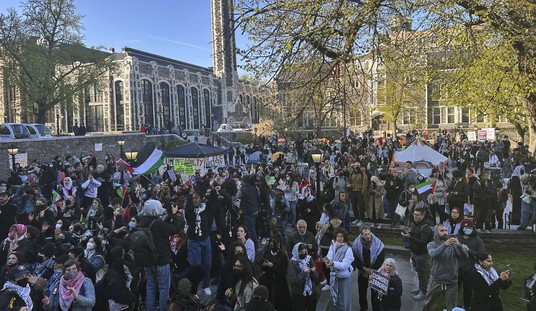
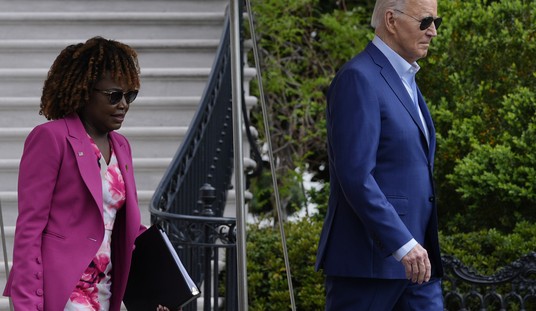
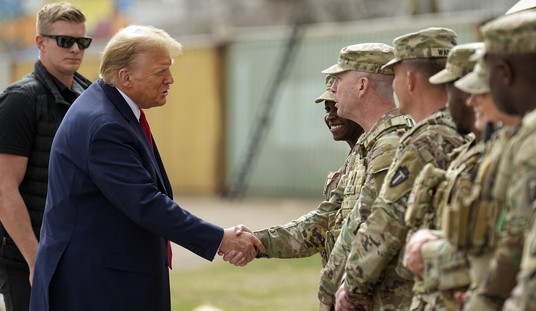
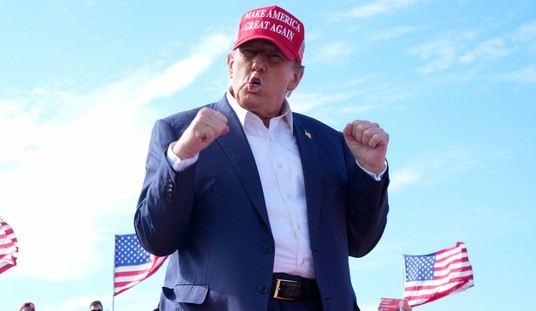

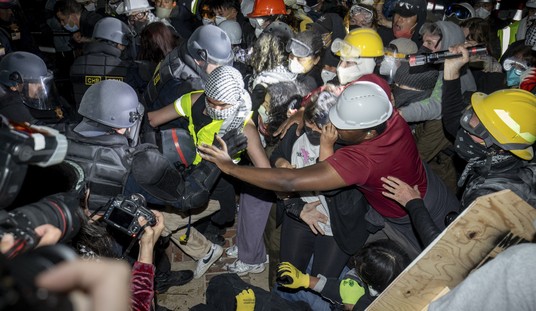




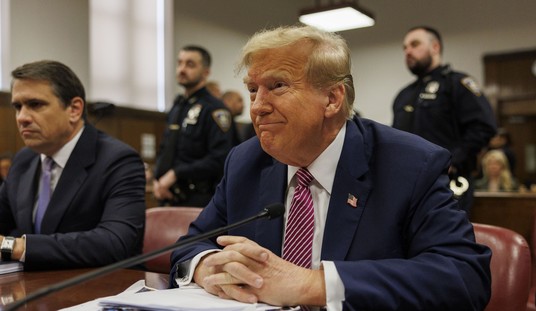
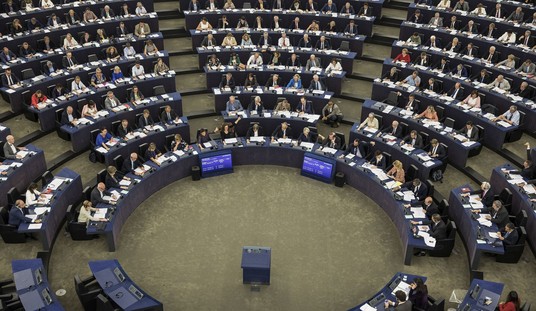
Join the conversation as a VIP Member